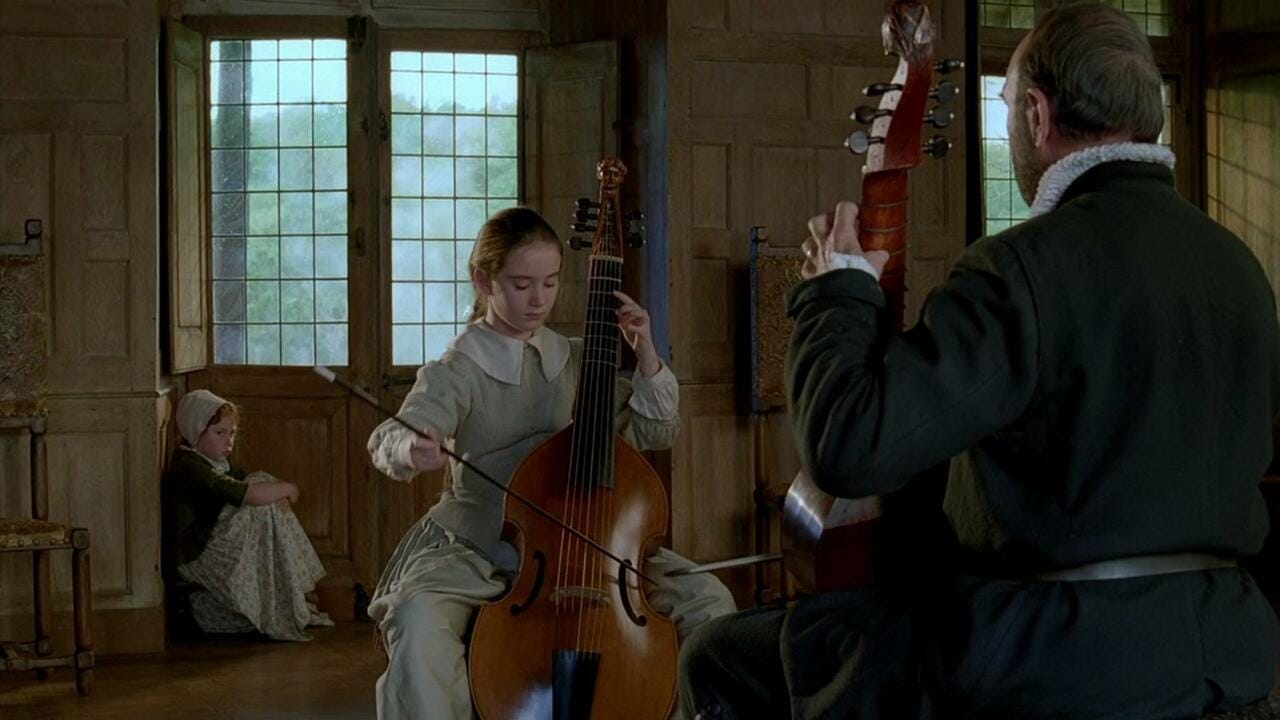I saw Tous les matins du monde at some point while I was in France in the mid-’90s. I thought it was a wonderful film, and probably thought about it some more for some time, and then forgot about it, as there was a good deal going on at that point in my life.
Some time later, much later—perhaps 20 years on—I ran across it again. I don’t remember the de…


